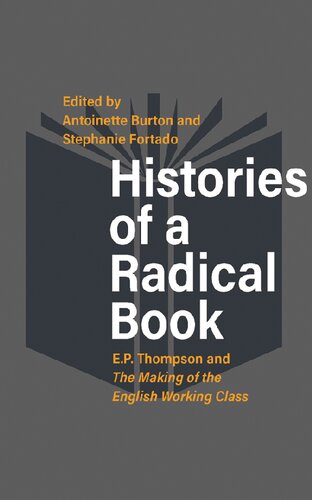

Most ebook files are in PDF format, so you can easily read them using various software such as Foxit Reader or directly on the Google Chrome browser.
Some ebook files are released by publishers in other formats such as .awz, .mobi, .epub, .fb2, etc. You may need to install specific software to read these formats on mobile/PC, such as Calibre.
Please read the tutorial at this link: https://ebookbell.com/faq
We offer FREE conversion to the popular formats you request; however, this may take some time. Therefore, right after payment, please email us, and we will try to provide the service as quickly as possible.
For some exceptional file formats or broken links (if any), please refrain from opening any disputes. Instead, email us first, and we will try to assist within a maximum of 6 hours.
EbookBell Team

4.4
82 reviewsDoes a revolution need big books anymore? Did it ever? As we write the
preface to this re-publication of our retrospective special issue on E. P.
Thompson’s The Making of the English Working Class in the summer of 2020, it
may not be the most important question. The people in the streets—Black,
Brown, white—are raising fists and holding masks in place, not brandishing
copies of books, whether larger or small. Some are turning, or returning,
to James Baldwin. Others reach for Frantz Fanon. His recurrent arguments
about the ways that colonial occupation made it “impossible … to breathe”
are an uncanny reminder of the way it has always been for people op-
pressed because of the color of their skin.1
Or, we read poetry—which, to re-
cast Irish poet Eavan Boland, is “at once an archive of defeat and a diagram
of victory.”2
In its comparatively small frame the poem holds the world, and
seems well-suited to our TLDR/too long didn’t read world. It’s the perfect
primer, readable off a small screen and committed easily to memory. Who
has the time or patience to read big books now?